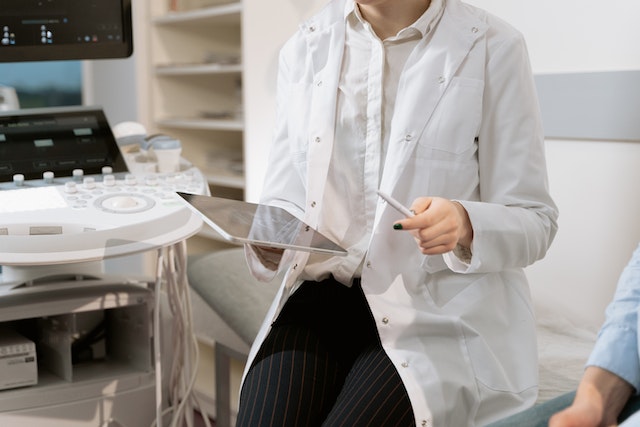BRI REPRODUCTIVE IMMUNOLOGY
DR. ANDREA VIDALI
155 East 76th Street
Suite 1H
New York, NY 10021
Recent Blog Posts
Request Your CONSULTATION
Click below to request a Consultation with Our Medical Team. He will review your history so that together you and he can determine your need for our services.
Living with Endometriosis: Coping Strategies and Self-Care Tips
Living with endometriosis can be challenging, both physically and emotionally. This chronic condition affects millions of women worldwide, causing pelvic pain, fertility issues, and other debilitating symptoms. While there is no cure for endometriosis, there are various coping strategies and self-care tips that can help improve the quality of life for women dealing with this condition. In this blog post, we will delve into practical and evidence-based approaches to manage endometriosis symptoms and promote overall well-being. We aim to empower women with valuable information and tools to navigate life with endometriosis more confidently.

Understanding Endometriosis: A Brief Overview
Endometriosis is a condition in which tissue similar to the lining of the uterus, called endometrium, grows outside the uterus. During the menstrual cycle, this tissue responds to hormonal changes, leading to inflammation, pain, and the formation of scar tissue (adhesions). While the exact cause of endometriosis remains unknown, several factors, including genetics and hormonal imbalances, are believed to play a role in its development.
Common Symptoms of Endometriosis
Endometriosis manifests differently in each woman, and the severity of symptoms can vary. Some of the most common symptoms include:
- Pelvic pain or cramping, often intensifying during menstruation
- Painful intercourse (dyspareunia)
- Heavy or irregular menstrual periods
- Chronic lower back or abdominal pain
- Digestive issues, such as bloating, constipation, or diarrhea
- Infertility or difficulty conceiving
Coping Strategies for Managing Endometriosis
While living with endometriosis can be challenging, there are various coping strategies and lifestyle changes that can help alleviate symptoms and improve daily functioning. Consider implementing the following tips to manage endometriosis more effectively:
- Stay Informed: Educate yourself about endometriosis to better understand the condition and its impact on your body.
- Build a Support Network: Connect with other women with endometriosis through support groups or online communities to share experiences and advice.
- Practice Gentle Exercise: Engage in low-impact activities like yoga, swimming, or walking to manage pain and reduce stress.
- Try Heat Therapy: Applying a heating pad or hot water bottle to the pelvic area can provide comfort and relieve pain.
- Consider Alternative Therapies: Acupuncture, mindfulness meditation, and relaxation techniques may complement conventional treatment approaches.
- Adopt a Balanced Diet: Focus on a nutrient-rich diet that includes fruits, vegetables, whole grains, and lean proteins.
- Limit Inflammatory Foods: Reduce consumption of processed foods, caffeine, and alcohol, which can trigger inflammation.
- Manage Stress: Chronic stress can exacerbate symptoms, so practice stress-reduction techniques such as deep breathing or journaling.
- Communicate with Your Healthcare Provider: Keep your doctor informed about your symptoms and treatment progress to ensure the most effective care.
- Explore Pain Management Options: Discuss pain relief strategies with your healthcare provider, such as over-the-counter medications or prescription pain relievers.
Self-Care Tips for Emotional Well-Being
Living with a chronic condition like endometriosis can take an emotional toll, so nurturing your mental health is equally important. Consider incorporating these self-care tips into your routine:
- Prioritize rest and adequate sleep.
- Engage in activities you enjoy to boost your mood.
- Seek professional counseling or therapy if needed.
- Practice self-compassion and avoid self-blame.
- Set realistic goals and avoid overextending yourself.
- Surround yourself with supportive and understanding loved ones.
When to Seek Professional Help
If your endometriosis symptoms worsen or significantly impact your daily life, it’s essential to seek help from a healthcare provider who specializes in endometriosis management. Your healthcare team can tailor a treatment plan to address your specific needs and improve your overall well-being.

Expert Care for Endometriosis
If you’re living with endometriosis and seeking compassionate care from a specialist, Dr. Andrea Vidali at the Endometriosis Treatment Center can provide personalized treatment options. With offices in New York and New Jersey, Dr. Vidali offers comprehensive endometriosis and infertility consultations and treatments.
Dr. Andrea Vidali
Endometriosis Treatment Center
308 Willow Ave
First floor, C/O Women’s Center
Hoboken, NJ 07030
516-584-8710
